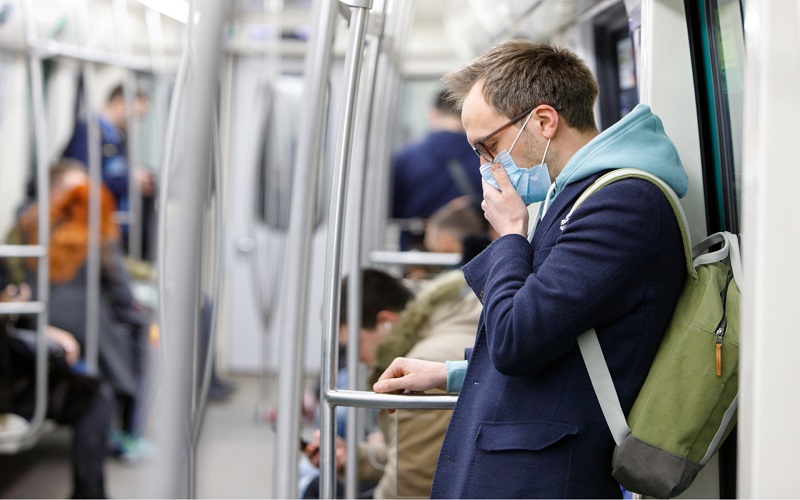Business Asks Pa. Justices To Weigh Virus Insurance Claims

Law360 (April 29, 2020, 7:45 PM EDT) — A Pittsburgh restaurant suing Erie Insurance Exchange over its coronavirus-related closure asked the Supreme Court of Pennsylvania Wednesday to step in and speed up “hundreds, if not thousands” of similar cases stemming from the COVID-19 pandemic.
Joseph Tambellini Inc. — one of many businesses asking state and federal courts to make their insurers cover lost income and extra costs related to state-mandated closures — petitioned Pennsylvania’s highest court Wednesday to exercise its “extraordinary jurisdiction” and “King’s Bench” powers to coordinate and expedite lawsuits over whether insurers must cover losses related to the pandemic, closures and stay-at-home orders, citing the sheer number of cases and the time it would take to see them through the usual appellate process.
“The instant action presents issues of immediate public importance,” said Tambellini’s emergency application to the state Supreme Court. “The delay occasioned by the standard appellate process will unduly prejudice not only the plaintiff, Tambellini, but also all citizens of the commonwealth who have been similarly aggrieved by the denial and disclaimer of insurance coverage, for which a premium was paid, by Erie and other insurers throughout the state.”
Tambellini asked the justices to assume control of its case and set an expedited schedule for briefing and arguments, and to also establish something like a federal multidistrict litigation in state court for coordinating and deciding the many similar insurance cases already filed or in the works. Other businesses filing in Pennsylvania’s federal courts have asked for such a multidistrict litigation to be formed in Philadelphia.
The restaurant, based in Pittsburgh’s Highland Park neighborhood, had filed suit against Erie April 17, claiming that Pennsylvania Gov. Tom Wolf’s orders closing “nonessential businesses” to reduce person-to-person spread of the coronavirus was a “civil authority” that caused the restaurant damages in lost business that should have been covered under its Erie insurance policy.
Unlike many insurance customers that had to lean more on their “civil authority” coverage to seek relief, the Erie policies did not contain exclusions for losses caused by a virus, the suit said.
But Tambellini’s petition said that an ultimate decision on whether Erie had to cover the restaurant and other customers like it would take years to go through the state’s Courts of Common Pleas, then the Superior Court before reaching the Supreme Court. Instead, the justices could use their extraordinary jurisdiction powers to decide an issue of immediate public importance, the request said.
“Exercise of jurisdiction by the court is warranted by the immediate needs of citizens of the commonwealth who need resolution of the legal insurance coverage issues facing them in attempting to restart their businesses and their lives in the face of the losses, damages and expenses caused by the COVID-19 pandemic and the related government orders,” the petition said. “Hundreds, if not thousands, of lawsuits are expected to be filed in the commonwealth by business owners against insurers.”
The attorneys for Tambellini asked the Supreme Court to coordinate the handling of those hundreds of cases in one county before a judge or group of judges, in order to make rulings faster, consistent and in keeping with whatever rulings the justices make on the issues raised by Tambellini. A footnote said the requested setup would be “not unlike that utilized by the federal courts pursuant to … rules of procedure of the Judicial Panel on Multidistrict Litigation.”
“Many small businesses in Pennsylvania will never have the opportunity to bounce back from this crisis if they don’t receive the benefit of the insurance they paid for,” said Lauren Nichols of Jack Goodrich & Associates PC, one of the attorneys representing Tambellini. “We strongly believe this is an issue of immediate public importance that can be best addressed by the Supreme Court’s King’s Bench jurisdiction.”
Scott Cooper of Schmidt Kramer PC, another attorney for the restaurant, said Erie had more than 25,000 policies in effect at the time of the COVID-19 crisis, underscoring the breadth of the issue and the need for expedited review.
A representative from Erie declined to comment on the specifics of the Tambellini case, but said the insurer was examining each coronavirus-related claim on a case-by-case basis.
“Business interruption insurance is generally not designed or priced to include pandemic outbreaks, and premiums are not calculated or collected based on providing coverage against communicable diseases. Business interruption insurance covers financial losses when a business cannot function because of physical damage to a commercial property,” said spokesperson Matthew M. Cummings. “We continue to support individuals and businesses impacted by COVID-19 and fulfill the promises made in our policies.”
Tambellini is represented by James C. Haggerty of Haggerty Goldberg Schleifer & Kupersmith PC, Scott B. Cooper and Abbie C. Trone of Schmidt Kramer PC, John P. Goodrich and Lauren Nichols of Jack Goodrich & Associates PC and Jonathan Shub of Kohn Swift & Graf PC.
Erie is represented by Richard W. DiBella and Tara L. Maczuzak of DiBella Geer McAllister & Best PC.
The case is Joseph Tambellini Inc. v. Erie Insurance Exchange, case number GD-20-005137, in the Court of Common Pleas of Allegheny County, Pennsylvania. It did not yet have a case number from the Supreme Court of Pennsylvania.
–Editing by John Campbell.
Categories
Announcement Car Accidents Insurance Medical Malpractice Motorcycle Accidents News PTSD Personal Injury Truck Accident Uncategorized Workers CompensationRecent Posts
Can Dashcam Footage Help My Case? What Kind of Medical Records Should I Keep? What Happens if I’m Permanently Disabled? HGSK Attorneys Recognized in 2025 Super Lawyers & Rising Stars Lists What if My Insurance Company Is Delaying Payment?